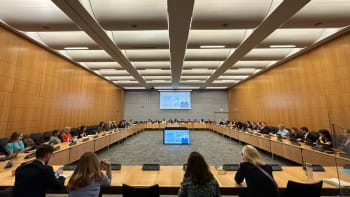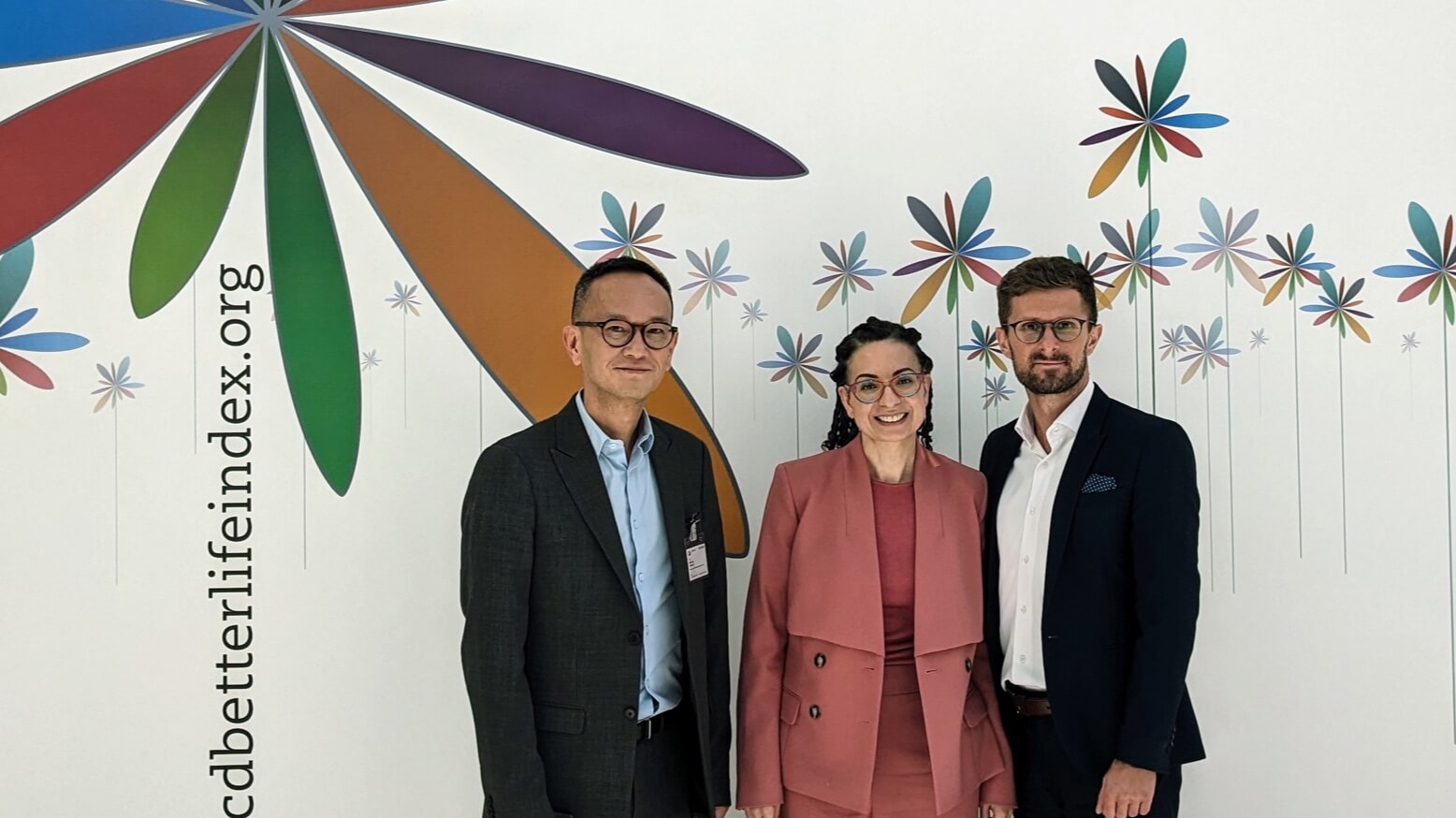Generation and OECD Convene Policy Makers And Experts Around “The Midcareer Opportunity”

Generation and the Organization for Economic Co-operation and Development (OECD) brought together close to 100 researchers, advisors, and policymakers, including high-level representatives of six OECD member states, on October 9th at the OECD headquarters in Paris, France.
The event centred around new research, The Midcareer Opportunity: Meeting the challenges of an ageing workforce, developed by Generation and the OECD and released the same day. The report lays out an analysis of midcareer and older talent (aged 45+) based on a survey of thousands of employers, jobseekers, and employees in eight countries.
Pamela Druckerman, journalist, Emmy-winning documentary producer and author, welcomed everyone and set the context of the event. She stressed the report’s importance, given the two powerful and persistent trends, longer lifespans and lower birth rates, which all but guarantee that midcareer and older workers will make up an even larger portion of the future workforce.
During his opening speech, Yoshiki Takeuchi, OECD Deputy Secretary-General, addressed the importance of lifelong learning to reduce generational gaps in the workplace. Takeuchi also explained why partnering with Generation to conduct this research was essential for the OECD.
“Lifelong learning is the new job security,” said the OECD Deputy Secretary-General.
After the opening speech, the report’s findings were presented by Mona Mourshed, Founding Global CEO of Generation, and Shruti Singh, Senior Economist in the Skills and Employment Division of the OECD, who together led the research effort. The presenters acknowledged the support of Google.org and Clayton, Dubilier & Rice Foundation, who funded the research in Europe and the United States.
According to Mourshed and Singh, the research shows that not only is the workforce ageing in advanced economies and increasingly in emerging ones, but deep-seated ageism persists. Employers prefer to hire younger people, due to concerns that candidates aged 45+ are less able to adapt to technological changes and learn new skills.
Those same employers, however, who already have midcareer and older employees consider their performance to be as good or even better than younger peers. This finding demonstrates the persistence of an “age-performance paradox”—the gap between negative perceptions about the performance of older workers held by employers and their actual performance—that needs to be bridged to leverage the midcareer opportunity.
“When it comes to learning new skills, we see no difference in performance between workers over age 45 and their younger peers,” said Mourshed, referring to Generation’s experience in providing training, job placement, and support to midcareer jobseekers. “We find that learners joining our programs later in life are learning from their younger peers and vice-versa,” she added.
The research shows that perceived job search difficulty increases with age, across all education levels. As people age, age is perceived as the number one barrier to employment. The presenters also stressed that job satisfaction declines steadily with age, but that those who recently switched jobs have higher job satisfaction. As workers age, they also face lower confidence in their chances of finding a new position, especially one they’d be happy with.
Lastly, Mourshed and Singh shared a list of recommendations for employers, policymakers, and older workers to combat ageism in the workplace and empower job seekers at any age.
“The role of the European Union (EU) is to revisit the issues presented in this report and learn from them,” said Maria Jepsen, Deputy Director of European Foundation for the Improvement of Living and Working Conditions (Eurofound), during her comments in response to the research.
Jepsen’s remarks were followed by a panel discussion that included:
- Stefano Scarpetta, Director, Directorate Employment, Labour and Social Affairs at the OECD;
- Avivah Wittenberg-Cox, renowned speaker & author on life’s four quarters;
- Aurélie Feld, President of LHH France & Luxembourg;
- Inger Paus, Director of European Public Affairs at Google;
- Mona Mourshed, Founding Global CEO of Generation.
Some key takeaways from the panel were the importance of mainstreaming a lifelong learning approach, the intersections between the gender and age gap when it comes to some of the main barriers to employment, and the importance of skills-based training and hiring.
For more information about this research please visit: generation.org/midcareer.
